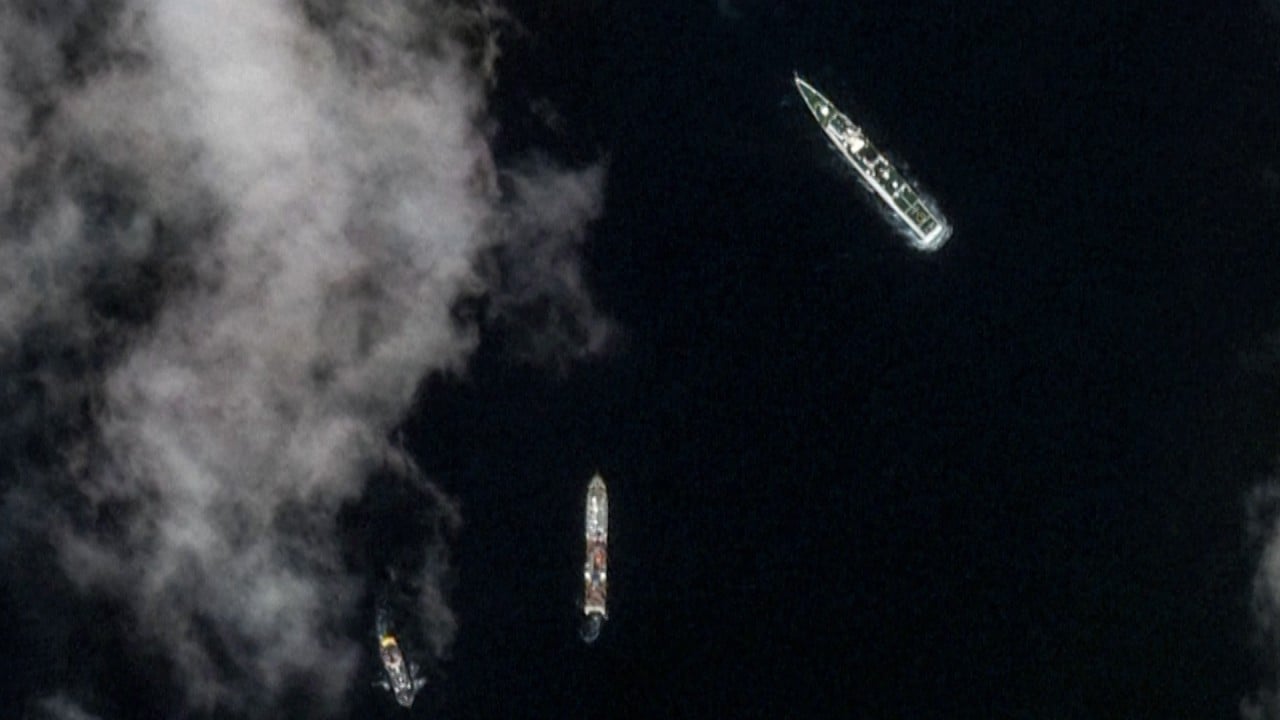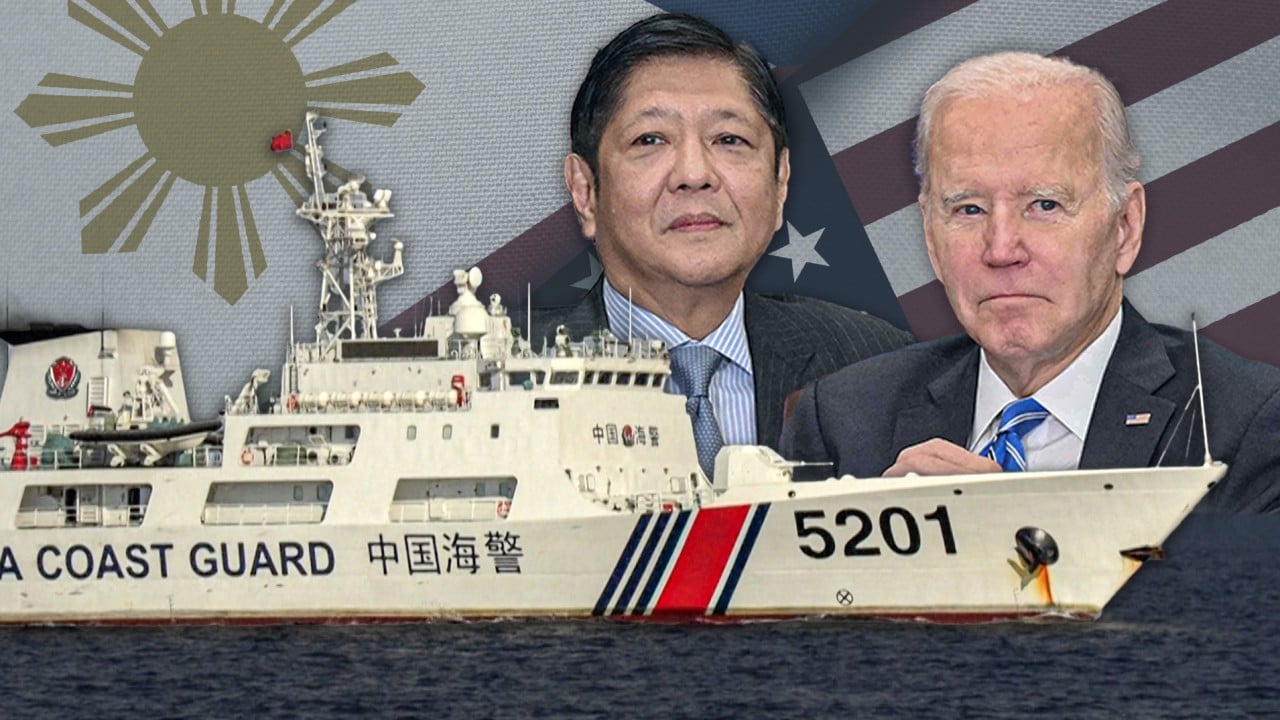
Philippines’ Rodrigo Duterte and China’s Xi Jinping allegedly had unwritten pact on South China Sea status quo
- Former president Duterte’s purported verbal pact with Xi intended to mitigate South China Sea disputes, yet China’s renewed hostility prompts scrutiny
- Revelation by Duterte’s ex-spokesman sparks debate on Beijing’s increasingly aggressive stance
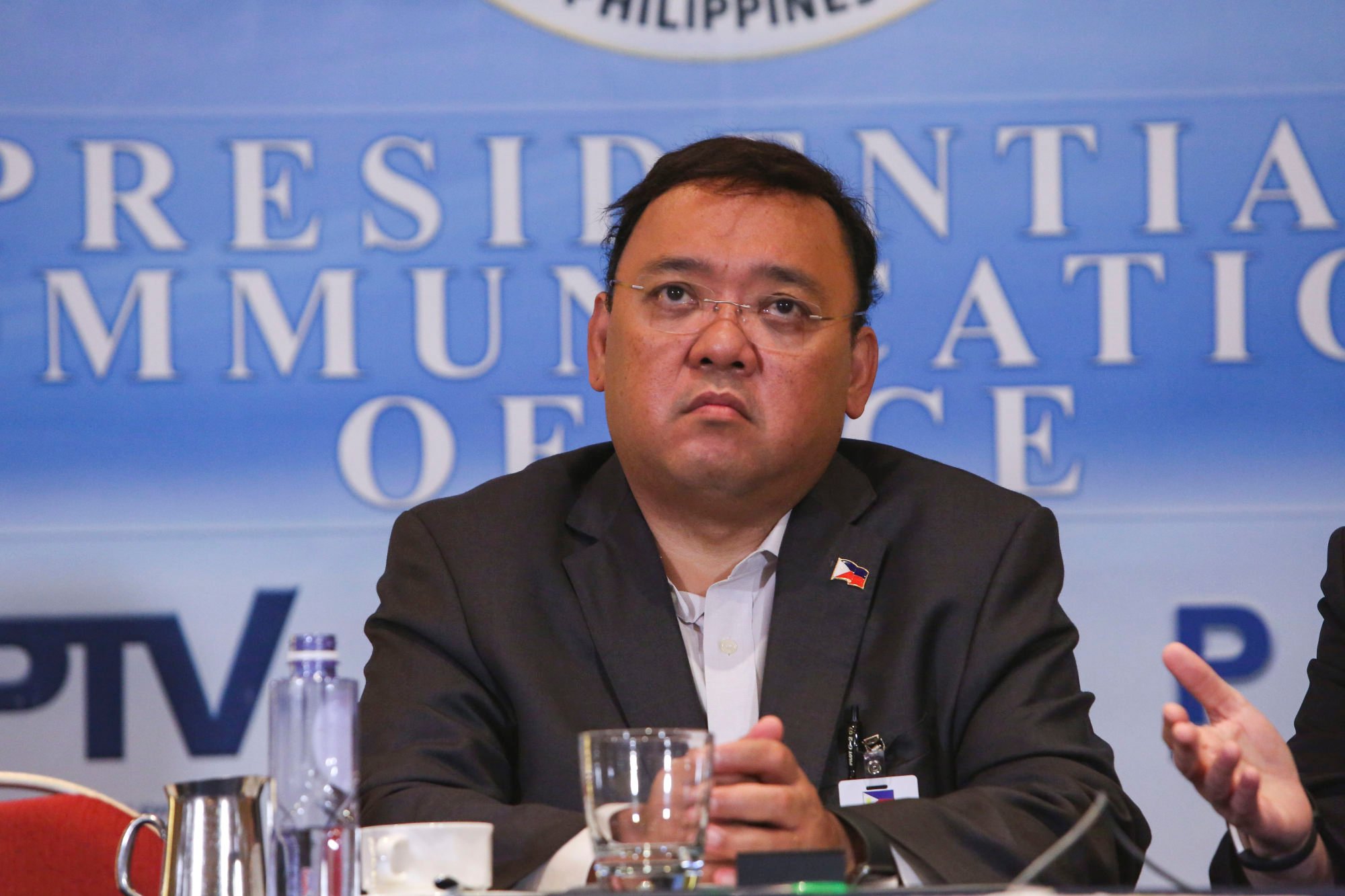
“This is not a secret deal. This was made public by former Foreign Affairs [Secretary] Alan Peter Cayetano, who said before that if there are no repairs, no improvements on the ship, no problem in Ayungin [the Philippines’ term for the Second Thomas Shoal] … only water and food will be supplied,” Roque said.
He explained that the deal also required China to cease construction activities on the Mischief Reef, located near the Second Thomas Shoal.
Roque, a lawyer by profession, refused to call it an “agreement” on Wednesday, saying instead it was only an “understanding” that the Philippine Navy’s monthly resupply missions to the BRP Sierra Madre would be allowed as long as they were for “humanitarian purposes”.
However, Roque claimed Beijing would be wrong to assume that such an agreement would be honoured by Marcos Jnr’s administration.
Roque’s revelation came in the wake of some lawmakers’ demands that Duterte shed light on the reported deal.
Marcos Jnr’s administration has not commented directly on Roque’s revelation, but the president on Wednesday said Manila would, in the coming weeks, implement “proportionate, deliberate and reasonable” countermeasures against Chinese aggression in the South China Sea.
Roque defended his former boss, saying the agreement never required the removal of the BRP Sierra Madre, as China had previously suggested had been agreed to.
He also suggested that China believed the current resupply missions included deliveries of construction materials, and recommended leaving the BRP Sierra Madre in its dilapidated state rather than pushing forward with repairs and risking Beijing’s ire.
“You cannot force China to agree with us in doing improvements on BRP Sierra Madre. China won’t agree to that … I think the better policy is, even though the vessel is dilapidated, we still have a presence there and our people have enough supply of food and water,” he said.
Ramon Beleno III, head of the political science and history department at Ateneo de Davao University, said the “gentleman’s agreement” was just a temporary solution back then to ease tension in the South China Sea but not a solution to the problem.
“That’s the problem now. China is using the agreement against us,” Belen told This Week in Asia.
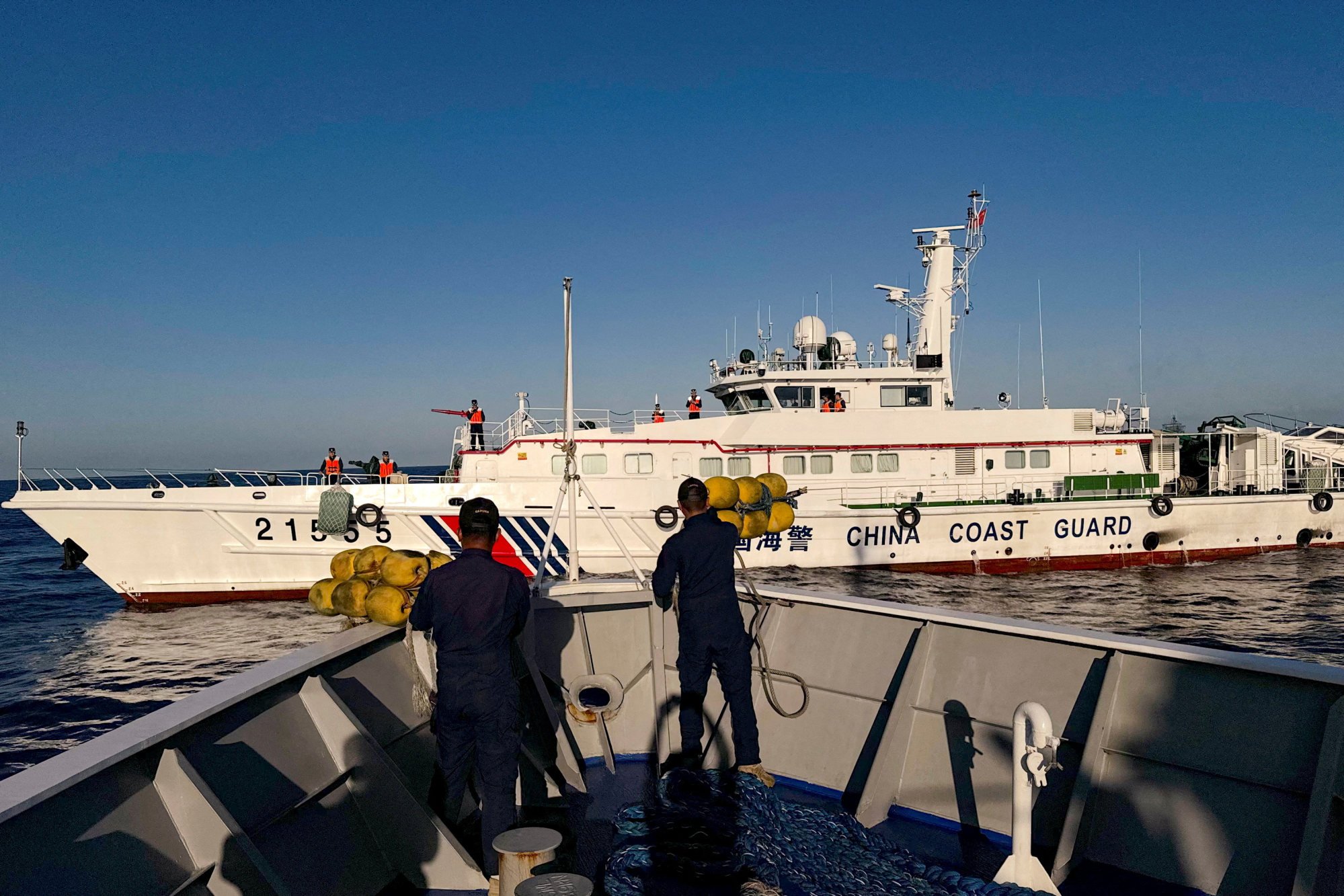
Former Philippine senator Leila De Lima, a fierce critic of Duterte, said in a social media post on Wednesday that Roque’s revelation, coming two years after he stepped down from government service, only showed the duplicity of the past administration, noting the fact that the agreement was kept secret from the public.
“Regardless, President Ferdinand Marcos is not bound by such a secret agreement. A president cannot be bound by agreements secretly entered into by a predecessor for the simple reason that he has no way of complying with an agreement the details of which are subject to the recollection of those who knew about it, and therefore are highly unreliable,” she said.
“In the end, a gentleman’s agreement heavily relies on the integrity of the parties … China should have known from the start that such an agreement with Duterte is useless, as he is definitely no gentleman, and even lies to, and deceives his own people,” De Lima stressed.
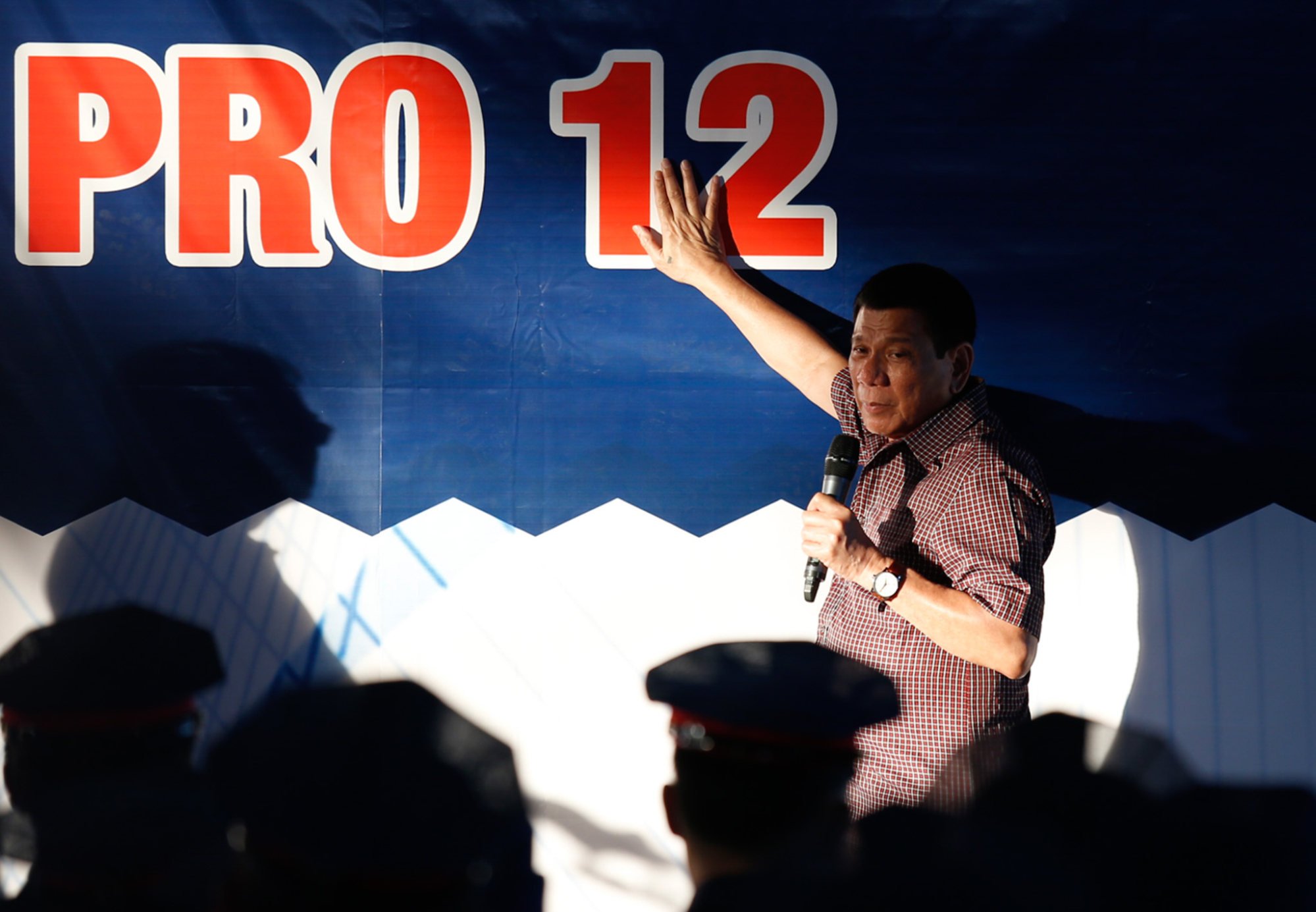
His soft stance towards Beijing was tested on June 9, 2019, when a Chinese maritime militia boat rammed a Filipino fishermen vessel in the contested waters, leaving 22 Filipino fishermen floating at sea until a Vietnamese boat rescued them.
Instead of lodging a protest, Duterte played down the incident as a “little maritime accident” that should not get in the way of friendly bilateral relations.
In February last year, Marcos Jnr gave the US widened access to military sites across the country under the Enhanced Defence Cooperation Agreement to boost the Philippines’ defence capabilities and response to natural disasters.
Marcos Jnr has also consistently taken a more hardline stance on China’s encroachment, promising not to cede any of the Philippines’ territory to foreign powers.
On March 23, Manila’s regular resupply mission to Second Thomas Shoal turned violent, with two Chinese Coast Guard vessels water cannoning a civilian supply boat for more than an hour, leaving three sailors injured and heavily damaging the boat.
Reporters witness Beijing’s clash against Philippine ships in South China Sea
It was the second incident in barely three weeks. Earlier this month, five sailors were also injured in similar harassment perpetrated by Chinese Coast Guard and its suspected Chinese militia in the same mission.
Filipino military historian and defence analyst Jose Antonio Custodio told a local radio station on Wednesday that China took offence when the Marcos Jnr government did not follow Duterte’s policies.
“There are repercussions for that. We need to be stronger … strengthen our relations with our international alliance system and with our forces in the West Philippine Sea. There should be more support for that,” Custodio said.
“Remember that even though Duterte was pro-China, China does not respect us.”

